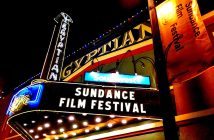By: David Sutherland, Senior Lecturer, University of Georgia’s Terry College of Business
Recently I was given the opportunity to read a wonderful script that had me laughing out loud. When I asked the writer/producer if she had had others review the script she said, “Not yet, but I got lots of great input from Largo AI.” Suddenly I realized, even though the actor’s and writer’s strikes had an AI focus, how little I knew about how this technology was going to impact not only the film and television industries, but how it would impact the broader Creative Economy.
Then, after several months of research, I realized “the good, the bad and the ugly” of the AI technology that was about to set upon us. In “the good”, I saw tools to help creatives hone their craft and skills, providing feedback, comparative analysis, and helping them focus their thoughts and ideas. In “the bad”, I saw tools that purported to help but had such shallow or inaccurate analysis that it would lead storytellers down inane pathways that, if not detected, would result in a huge waste of time and funds. The worst of “the ugly” were tools that had creatives giving up rights to their intellectual property for little gain. (More on the IP issue in my next article.)
Largo AI touts that you can “Accelerate your filmmaking with AI-powered insights!” drawn from a vast database, providing content analysis, financial forecasts, character and casting analysis and packaging tools including potential actors’ pricing. Its script analysis tool compares your script to similar scripts, identifies what worked and didn’t work in those similar scripts (based on viewer reporting) and suggests shifts the writer might make, while estimating production costs for your refined script.
Other tools I found can review and advise on the sentiment in a script, analyze character development and dialogue authenticity, review segments of film to advise on accent and portrayal and identify options and flaws in set design. In essence, there is an AI tool for all areas of film, which in my last GEN article I said covered most areas of the creative economy (visual art, sound/music, story, talent, etc.) which indicates that there are AI tools for all areas of the Creative Economy.
In reviewing the tools available, it became clear there are tools that review and critique, and there are tools that create and construct. The former tools seem to provide a sparring partner for the creative, allowing one to bounce ideas off a network of algorithms linked to an internet worth of data. The latter takes your key words and moves from text to image, allowing you to refine your vision as you go along. Without the tool you might “Google” your thoughts using key words to come up with images as ideas for your input. But by using an AI based tool, it is learning from you what you like, don’t like, moving you ever closer to your vision. In fact, the tool is developing a mirror of your point of view while engaging its algorithms and data.
Finally, I had always wanted to capture a story which is the source of a recurring nightmare I have; a story I in fact am not allowed to tell because of its classified nature. I found an AI tool that captured the story from spoken narrative, converted it to text and then after some questions and prompts, rendered it in a short video. I viewed the AI generated video twice. It was so ultra-realistic it terrified me. I deleted the video (I hope it is gone) but am now totally convinced of the power within these tools. Our challenge now is to focus on “the good” they can bring and to make sure “the bad” and “the ugly” uses are mitigated or controlled.
 David Sutherland has been an entrepreneur, a corporate executive (formerly Vice President of Innovation, Computer Sciences Corporation) and a trusted innovation advisor to a set of companies including CIRT Tech, Blink Interactive, NASA, BMW, Siemens, and Bank of America. David is an active participant in several startup ecosystems, including Austin, Texas, Boulder, Colorado, as well as Palo Alto, California.
David Sutherland has been an entrepreneur, a corporate executive (formerly Vice President of Innovation, Computer Sciences Corporation) and a trusted innovation advisor to a set of companies including CIRT Tech, Blink Interactive, NASA, BMW, Siemens, and Bank of America. David is an active participant in several startup ecosystems, including Austin, Texas, Boulder, Colorado, as well as Palo Alto, California.
As a Senior Lecturer at the University of Georgia’s Terry College of Business, David teaches courses in Entrepreneurship, Design Thinking, and runs seminars on the topic of Creative Economies. In addition to the Terry Executive Education Program. David has lectured at Universidad de los Andes in Bogota, Colombia, CEDIM Design Institute in Monterrey, Mexico and GISMA Business School in Hamburg, Germany.
David received a Ph.D. from the University of Virginia and he resides on a farm in Athens, Georgia, with his wife Sarah, dog Norah and a variety of horses.




